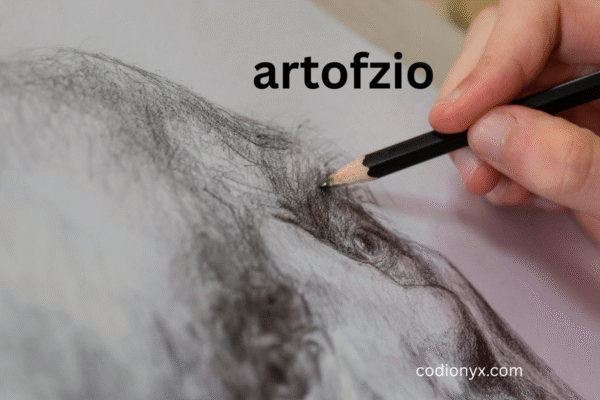Introduction
Recently, the University of Metaphysical Sciences Lawsuit, a well-known online school that grants degrees in spirituality, energy healing, and metaphysics, has become the subject of judicial inquiry. A lawsuit brought against the university calls into doubt the legitimacy of its business methods, accrediting claims, and curricula.
For students, alumni, and the alternative education community as a whole, this legal dispute may have far-reaching effects. In this in-depth piece, we look into the specifics of the complaint, evaluate the claims, and consider the implications for metaphysical education going forward.
A Comprehensive Overview of the University of Metaphysical Sciences Lawsuit
University of Metaphysical Sciences Lawsuit, which was founded by Dr. Christine Breese, positions itself as a leading university for metaphysical studies and offers undergraduate, graduate, and doctoral degrees in subjects including parapsychology and spiritual counseling.
Energy Healing and Mystical Research
UMS functions under religious exemption status, which means it is not recognized by regional accrediting agencies or mainstream educational organizations like the U.S. Department of Education, in contrast to typical universities. Employers and other educational institutions could not recognize its degrees, even if this permits flexibility in curriculum creation.
The Lawsuit: Dissecting the Claims
A number of important problems are at the heart of the lawsuit against UMS:
1. False Claims of Accreditation
The plaintiffs claim that UMS purposefully concealed the fact that it was not accredited, giving students the impression that their degrees would be respected in the workplace. According to several graduates, they learned too late that their qualifications were not recognized in the fields they wanted to pursue.
2. Dubious Academic Credibility
Some students claim they obtained advanced degrees with little coursework or academic examination, supporting the claim that UMS programs lack the rigor of traditional education.
3. Claims of Deceptive Advertising
According to the lawsuit, UMS suggested job options that might not be available to graduates using deceptive language in its promotional materials. According to some former pupils, they were promised improbable results.
4. Enrollment and Refund Issues
Many students claim that the university’s procedures were unclear or handled inconsistently, and that they had trouble getting refunds after dropping out of programs.
The Official Reaction of UMS
Representatives from the university have vehemently denied any misconduct, claiming that: – They openly acknowledge that they are not accredited; – Their programs are geared toward personal development rather than traditional career advancement; – They offer priceless spiritual instruction that is not offered by traditional institutions.
In support of the university’s objective, Dr. Breese has emphasized that metaphysical education caters to a distinct student body and exists outside of traditional academic frameworks.
Consequences for Present and Future Students
This legal dispute brings up significant issues:
Degree Recognition: Employers may not accept or transfer UMS credentials to other educational institutions.
Risk to finances: Students should carefully consider the possible return on their investment.
Other Choices: Individuals in need of authorized degrees ought to look into reputable institutions in comparable disciplines.
The Wider Effects on Alternative Learning
This case brings to light current discussions regarding: – The function of unaccredited educational institutions – Consumer safeguards for students enrolled in non-traditional programs
How to strike a balance between accountability and educational freedom
The verdict in the case may establish significant guidelines for future operations of spiritual and metaphysical schools.
Conclusion
When selecting an educational program, the university of metaphysical sciences lawsuit case serves as a reminder of the value of doing your research. Alternative schools serve a valuable need, but before joining, students should:
1. Confirm their accreditation status
2. Examine how degrees will be accepted in their field.
3. Pay close attention to refund and enrollment agreements.
4. Take into account their long-term learning and professional objectives
As the case progresses, metaphysical education can become more transparent. Prospective students should carefully consider their alternatives and keep informed.
FAQs
1. Is there accreditation for the University of Metaphysical Sciences Lawsuit?
No, reputable educational accrediting organizations do not recognize UMS. It is exempt from religious requirements.
2. Can I transfer credits or find employment with a UMS degree?
UMS degrees are not recognized by the majority of authorized universities and businesses. They might be accepted by some spiritual or holistic organizations, University of Metaphysical Sciences Lawsuit.
3. What are the lawsuit’s principal claims?
The lawsuit alleges a lack of academic rigor, dishonest marketing, inaccurate accreditation assertions, and problems with refunds, University of Metaphysical Sciences Lawsuit.
4. In light of this case, should I enroll at UMS?
Prospective students ought to think carefully about their objectives. Look elsewhere if you require an approved degree. Do extensive research if you’re looking to grow spiritually, University of Metaphysical Sciences Lawsuit.
5. What occurs if the University of Metaphysical Sciences Lawsuit is lost by UMS?
Financial penalties, required policy changes, or obligations to reimburse impacted students are examples of potential results.
6. Are there recognized substitutes for UMS?
Indeed, there are approved programs in allied subjects including psychology, counseling, and religious studies with metaphysical elements offered by certain colleges.










